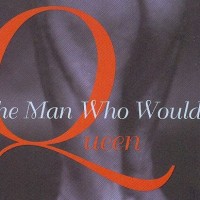My Letter to National Academies (2003)

©2003, 2013 by Dallas Denny
Source: My files. This letter is also posted on Lynn Conway’s website.
Let’s not mince words: Michael Bailey’s The Man Who Would be Queen is a travesty and an abomination. Here’s my letter to the National Academy of Science.
25 June, 2003
Bruce Alberts, President, the National Academy of Sciences
Harvey V. Fineberg, President, the Institute of Medicine
The National Academies
2101 Constitution Avenue NW
Washington DC 20418
Dear Dr. Alberts and Dr. Fineberg:
I am writing in regard to a recent publication under the National Academies of Sciences imprimatur, namely J. Michael Bailey’s The Man Who Would be Queen. As you know, Bailey’s book is deliberately provocative and is considered highly offensive by many who have read it. I count myself in this growing number.
Also as you know, Bailey is claiming he is advancing a science-based argument in his deliberately objectional depictions of gay men and transsexuals. However, there is no science in his book, merely sweeping generalizations and grand statements which are not backed up by data or even citations for publications which might contain such data.
Controversial books often serve to advance science, but only when they use carefully considered arguments and present data to convince the reasoned reader of the validity of the author’s arguments. Darwin did this. Thomas Kuhn did this. Even popular works such as the late Stephen Jay Gould’s The Mismeasure of Man discuss actual research and interpret the findings. The Jerry Springer approach used by Bailey informs no one; it serves merely to further polarize an already-polarized issue.
My question to you is: why has the esteemed National Academies of Sciences lent its credibility and dignity to such a discreditable and undignified work as The Man Who Would Be Queen? In this age of reality TV and junk journalism, are you deliberately tarnishing your heretofore respected image—or was someone asleep at the wheel?
Thank you.
Dallas Denny, M.A., Licensed Psychological Examiner (Ret.)
